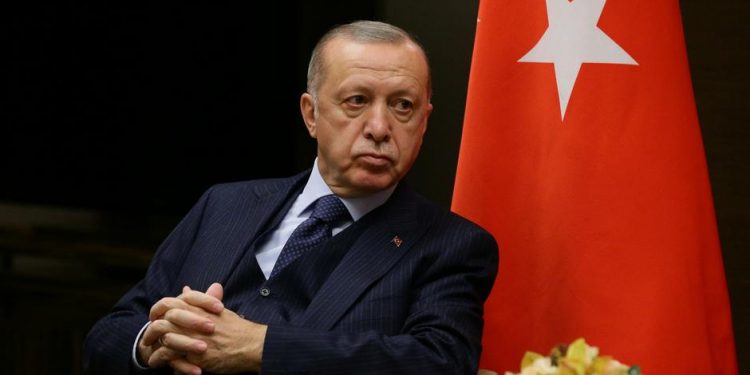Istanbul: Turkey’s president Recep Tayyip Erdogan cast serious doubt on NATO’s expansion Monday after warning Sweden not to expect support for its bid for membership into the military alliance following weekend protests in Stockholm by anti-Islam activist and pro-Kurdish groups.
Erdogan slammed Rasmus Paludan’s Quran-burning protest Saturday, saying it was an insult to everyone, especially to Muslims. He was particularly incensed at Swedish authorities for allowing the demonstration to take place outside the Turkish Embassy in Stockholm under “the protection” of security forces.
“It is clear that those who allowed such vileness to take place in front of our embassy can no longer expect any charity from us regarding their NATO membership application,” Erdogan said in his first comments regarding the weekend protests, saying Sweden must have calculated the consequences of permitting Paludan’s demonstration.
Erdogan also criticized Sweden for allowing pro-Kurdish protests where demonstrators waved flags of various Kurdish groups, including the Kurdistan Workers’ Party, or PKK, which has waged a decades-long insurgency against Turkey.
The PKK is considered a terrorist group in Turkey, the European Union, and the United States, but its symbols aren’t banned in Sweden.
A joint memorandum signed by Turkey, Sweden, and Finland in June averted a Turkish veto of their membership bid at NATO’s Madrid summit where they confirmed the PKK as a terror group and committed to preventing its activities. Continued protests are infuriating Ankara which has said Sweden must address Turkey’s security concerns and demands for the Turkish parliament to ratify their NATO request.
Swedish officials have stressed that freedom of expression is guaranteed by the Swedish Constitution and gives people extensive rights to express their views publicly, though incitement to violence or hate speech isn’t allowed. Demonstrators must apply to the police for a permit for a public gathering. Police can deny such permits only on exceptional grounds, such as risks to public safety.
Top Swedish officials have said freedom of expression is crucial to democracy while criticising Paludan’s actions as disrespectful and ones they disagree with.
Anti-Islam activist Paludan, who holds both Danish and Swedish citizenship, established far-right parties in both countries that have failed to win any seats in national, regional, or municipal elections. In last year’s parliamentary election in Sweden, his party received just 156 votes nationwide. His burning of the Quran sparked counter-protests in Turkey over the weekend, where demonstrators burned his photograph and a Swedish flag.
AP







































